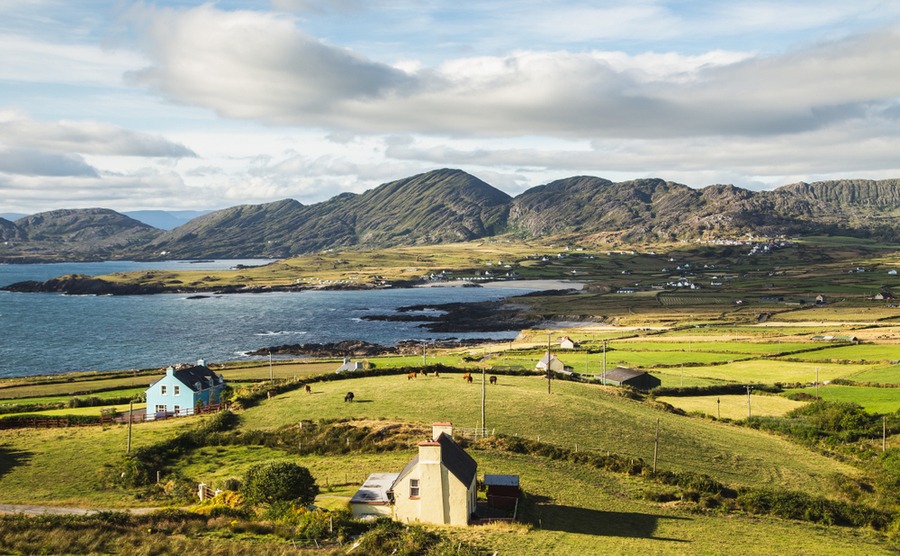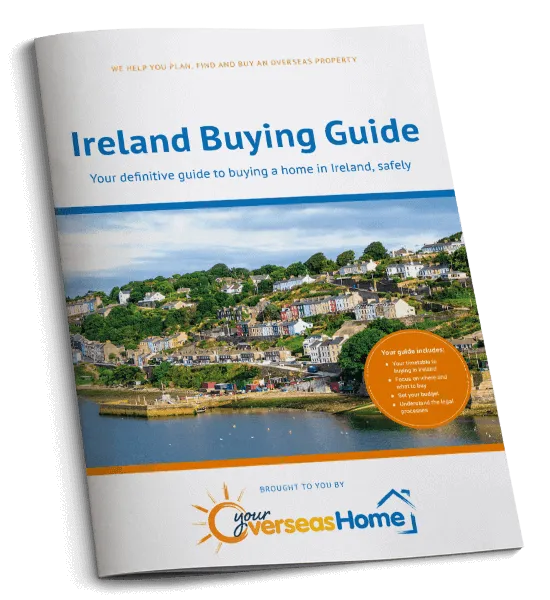According to Chief Medical Officer, Dr Tony Holohan, Ireland has succeeded in flattening the curve of coronavirus and now no peak is expected. As of Monday 20th April, there are 15,251 confirmed cases.
What is the current situation in Ireland?
The curve may have been successfully flattened, but no chances are being taken and all of Ireland’s 26 counties remain in lockdown. The restrictions are set to remain in place until Tuesday May 5th. However, before then, the country is braced for an announcement concerning easing of measures, when they might occur, and how they are likely to work.
Don’t let yourself be left behind when there’s a rush of buyers once normality returns – get ahead of the queue by planning today. Start by reading your free Emigration Guide.

How is Ireland coping with coronavirus?
Under the current restrictions, everyone but key workers and those conducting essential work that they can’t do from home, are expected to stay in their houses. Exemptions include farming, leaving home for vital family reasons such as providing care for the elderly or vulnerable, and the care of animals. Everyone else can only leave home to buy groceries, household goods or to collect a meal, to attend medical appointments or collect medicines, or to exercise within a 2km radius of the home.
Taoiseach, Leo Varadkar, has praised the Irish nation for their efforts, which he says have saved many lives. He stated:
“Because the vast majority of people have heeded the advice of the experts we have been able to interrupt the spread of the virus, we have been able to shelter the most vulnerable and protect them. Your sacrifices are making a difference, we have slowed the spread of the virus considerably.”
However, Varadkar, who originally hoped to ease lockdown restrictions in time for Easter Sunday, stressed the need to stay focused, and, that upon official advice, lockdown must remain in place until May 5th at the earliest.
What measures has the government introduced to help Irish citizens?
Ireland have introduced a number of measures designed to help individuals and businesses. These include a temporary wage subsidy of between 70-85 percent of take home pay up to €350 per week/ per employee. What percentage each person receives will be dictated by their average net weekly pay. Also, the government have announced a special COVID-19 Pandemic Unemployment Payment of €350 per week, and an Illness Benefit of €350 per week.
Also, the government have announced a €200 million working capital scheme specifically for businesses deemed ‘significantly impacted’ by the pandemic, with loans of up to €1.5 million available. Sole traders and smaller companies can secure microfinancing, with immediate loans of €25,000-25,000 up for grabs. Finally, Ireland’s banks have been urged to show compassion to lenders in terms of mortgage payments.
How are the nation’s spirits?
In true Irish style, the nation has come together in an impressive and heart-warming manner. The Ireland’s Be On Call for Ireland initiative launched by The Health Service on March 17th, received over 72,000 volunteer sign-ups of people willing to support the health service during the crisis. At this stage of recruitment, the focus was on finding healthcare professionals who weren’t currently providing essential healthcare services elsewhere. Those targeted for recruitment include nurses, dentists, ambulance personnel, physiotherapists, health and social care professionals, radiographers, dieticians and so on. The volunteers are made of people willing to help with essential and vital healthcare areas, including matters such as cleaning and portering.
Read our Healthcare Guide to accessing medical attention in 11 countries.
There have been a number of high-profile campaigns launched by people within the community, such as the Feed the Heroes fundraiser – set up by a Dublin businessman who originally wanted to raise just €1,000 to pay for local restaurants and takeaways to send meals to feed frontline healthcare workers. The fundraiser quickly surpassed €550,000 with many celebrities chipping in, and more than 20,000 meals being supplied – and it’s still going strong! Up in Donegal, a fashion designer set up a fund to raise €1,000 to pay a local clothing company to produce scrubs for healthcare workers. Within just six days, the fund hit €58,000 – enough to produce hundreds of sets of scrubs. Furthermore, car hire and bike share companies across Ireland have sprung into action, funded by anonymous donors and tech-entrepreneurs, to ensure health care workers have means to get to work.
When is Ireland likely to come out of lockdown?
An announcement is expected before May 5th, which will outline how lockdown restrictions in Ireland are likely to be eased. Varadkar has stressed that the restrictions will be relaxed over a number of months, and how to do so will be based on scientific data from European countries who are a few weeks ahead of Ireland about the safest and most effective ways to do so. There are three sets of data that all of Ireland’s plans will be based on; epidemiological data, i.e. the number of cases, hospitalisations and people in ICU; the capacity of the Irish health service, and testing and tracing capacity.
It is clear that social distancing will need to remain in place for some time – most likely until a vaccine is created, with some saying that pubs and venues may have to keep their doors closed for the rest of the year. Varadkar has stated Ireland is not as close as it would like to be in terms of creating a vaccine, but that they are making progress and over 90,000 COVID-19 tests have been conducted, providing information essential to finding a vaccine.
How is Ireland’s property market being affected?
With all construction, mortgage approvals and sales on hold, Keith Lowe, Chief Executive at DNG, says coronavirus has effectively applied a ‘hand brake’ to the Irish market. In their latest report, it states: “It is unclear what effect the outbreak will have on prices in the short term. It has changed the way all businesses operate, but the early signs are that potential buyers remain very active in the market.” Buyer habits during the crisis look to be changing, with DNG stating they have received a higher number of enquiries via online channels.
In the short term, the Irish property market looks set to lose momentum, and prices may drop. However, things will pick up as soon as there is more certainty, and – if you’re one of the fortunate ones who are in secure employment, this could prove a good time to buy. However, we could well expect to see a rush from pent-up demand, so it’s important to make sure you’re at the front of that queue. Start preparing now by reading our free buying guide and getting a no-obligation quote, below, so that you know what your budget can get you in euros.







